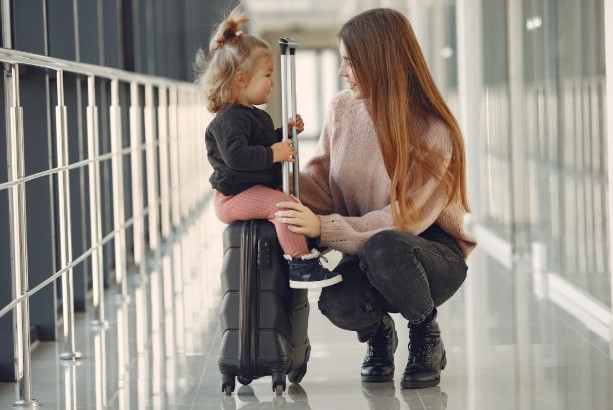
Balancing work travel with school-age kids at home can feel like a juggling act. As parents aim to excel professionally, they also want to meet their children’s needs. Frequent travels mean missing out on some family moments, which can be challenging, especially when school and routine are involved.
Planning ahead is key to making travel more manageable. With the right strategies, it’s possible to stay connected with your children, keep them organised, and make the transitions between home and travel smooth. Here are some tips to help you manage both family and work commitments effectively.
Establish a Consistent Routine
Children thrive with structure, especially those in primary school. A consistent routine gives them a sense of stability, which is crucial when a parent is away for work. Having a routine that involves clear wake-up times, homework sessions, and bedtime rituals keeps kids on track even when you’re not physically there to guide them.
Ensuring the routine stays largely unchanged while you're away helps reinforce that everything’s still running smoothly. Try setting up a schedule that both you and any caregivers can follow. This may include certain after-school activities, study times, and family rituals that continue in your absence. It reassures kids that they can rely on a structured plan, which reduces any stress or confusion.
Make time to review this routine regularly with your children, especially if they’re attending primary school, where developing habits is essential. Discussing their schedule and your upcoming travels gives them a chance to adjust and voice any concerns, making them feel involved and supported.
Keep Communication Open and Regular
Maintaining communication with your children is essential, particularly during frequent travel. Regular check-ins help bridge the distance and keep you connected with their daily lives. You don’t have to spend hours on the phone. Even short chats about their school day or upcoming events can make a difference.
Setting specific times to call or video chat, such as after school or before bedtime, helps kids anticipate and look forward to these moments. Younger children often appreciate knowing they’ll speak to you at the same time each day, which adds consistency to their day. Choose a time that works for both of you and stick with it to create a reliable routine.
Consider involving them in small, daily conversations about their studies, friendships, or activities. It doesn’t have to be a deep conversation every time. Showing interest in their experiences makes them feel valued and loved. Primary school kids benefit from knowing you’re actively engaged in their world, even from afar.
Rely on a Strong Support Network
A solid support network is essential when balancing work, travel and family responsibilities. This network could include grandparents, friends, or even other parents from your child’s school. Knowing that trusted people are there to support your kids in your absence provides peace of mind and helps maintain your children’s daily routine.
Discussing your schedule with family members or friends and asking them to fill specific roles can significantly help. For instance, if a friend is picking their child up from primary school, they could pick up your child, too. These small gestures can make a big difference, especially on a tight travel schedule.
Keep this network informed about your children’s regular activities, preferences, and routines when possible. The more they know about your children’s needs and habits, the smoother the transition during your absence will be. A well-prepared support network can make your time away less stressful for both you and your kids.
Involve Kids in Your Travel Plans
Getting children involved in your travel plans can ease any feelings of separation. Letting them know where you’re going, why, and when you’ll return makes them feel part of your journey. For example, showing them where you’ll be on a map or sharing interesting facts about the place can make your travel feel more engaging and less isolating. If your travels take you to a location like Melbourne, you might even highlight unique aspects such as staying in fully furnished serviced apartments in the Melbourne CBD, known for their comfort, convenience, and family-friendly amenities.
You might also set up a calendar at home where they can mark the days until your return. This visual countdown gives them a sense of time and something to look forward to, helping them feel reassured about your return. Engaging them in small ways like this keeps your presence in their daily lives.
If your children are interested, consider bringing back small souvenirs or sharing photos and stories when you return. This will remind them that even while you’re working, you’re thinking about them, strengthening your bond and keeping your travels relevant to their world.
Emphasise Quality Time During Home Stays
Time at home becomes all the more precious when you travel frequently. Making a conscious effort to prioritise family time when you’re home can counterbalance the periods of separation. Whether it’s helping with homework, playing a game, or cooking together, dedicating undivided attention to your kids reassures them of your commitment.
Primary school children, in particular, benefit from such dedicated time. Being fully present with them (i.e., putting away devices and focusing on shared activities) creates memories that last through the next trip. This can also become a time to discuss anything they felt or missed during your absence, giving them a safe space to express themselves.
Establishing special rituals for when you’re home, like a weekend movie night or a regular family outing, reinforces your presence in their lives. It gives kids something to look forward to, building a positive connection that helps sustain them emotionally even when you’re away for work.
Final Thoughts
It’s important to remember that each family is unique, and what works well for one might not suit another. If you’re finding it challenging to balance travel with family commitments even after adapting these tips, consider reaching out to a family counsellor or other professional for tailored support.